This time, we would like to introduce Koyo Iwabuchi, who competed in two consecutive Paralympic Games – the Rio 2016 Games and the Tokyo 2020 Games – and was the flag-bearer for the Japanese delegation at the Tokyo 2020 Paralympic Games. Koyo, known as Japan’s Para table tennis ace, shared with us his memories of the Tokyo 2020 Paralympic Games, his enthusiasm for the upcoming Paris 2024 Paralympic Games, and his thoughts on some of the more appealing sightseeing spots in Tokyo.
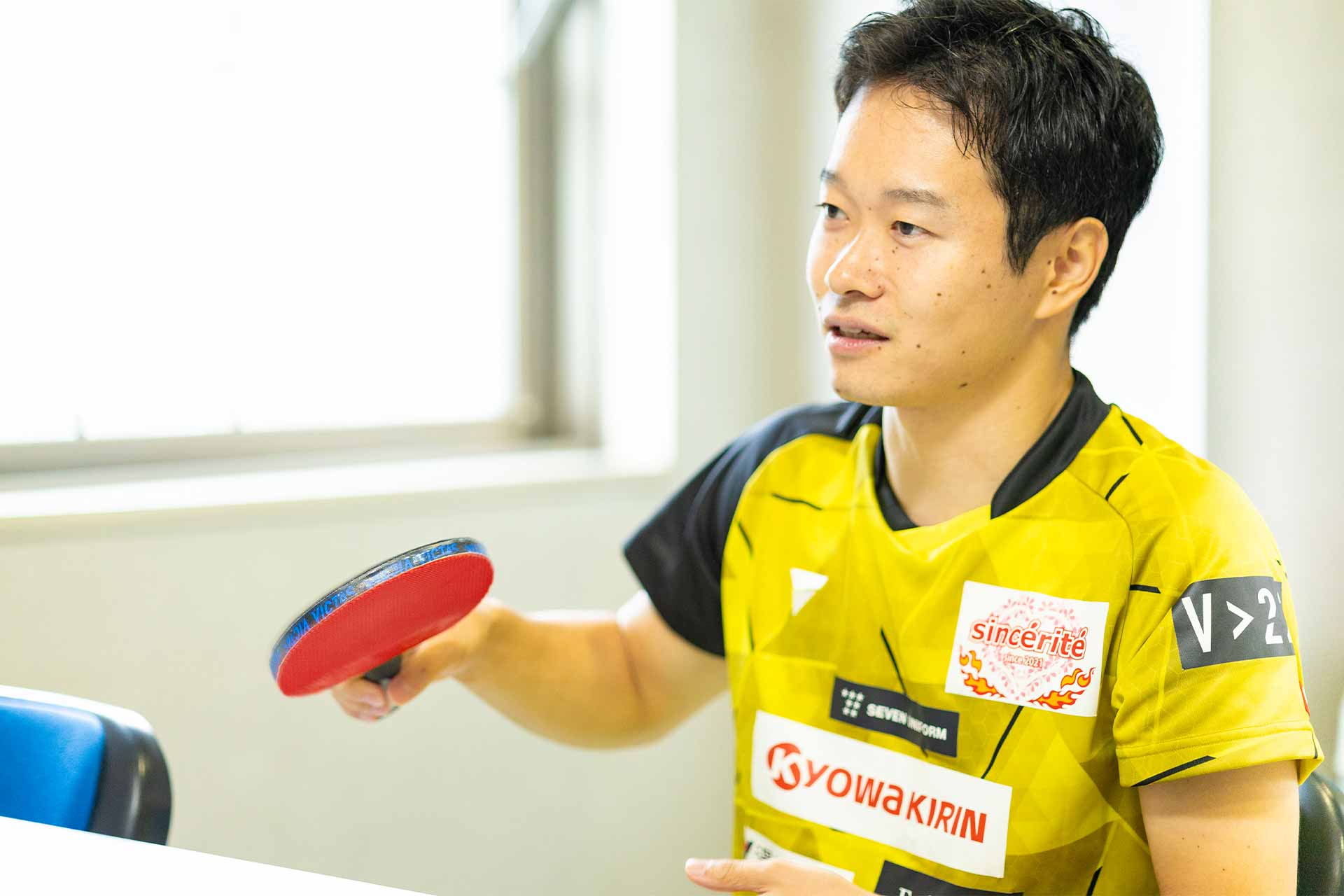
You first began competing in table tennis in your first year of junior high school. What was it that drew you to table tennis?
“I’ve always loved sports, and when I started junior high school, I wanted to play a sport that involved using a racket. My choices were tennis, badminton, and table tennis. Tennis and badminton required a whole lot of running. It’s not that I can’t run, but when I thought about things in the long-term, table tennis seemed to be the best fit, so I joined the table tennis club.”
How did you feel when you actually started playing table tennis?
“In table tennis, each player has their own style, and there’s not a lot of difference in physique. I found it interesting to be able to compete while maneuvering through technical aspects. In my case, I have a disability with my legs, but I can still play against people without disabilities. I thought it was great that players both with and without disabilities were able to compete against one another under the same rules.”
The gameplay in matches is quite intense, as is the speed of the ball.
“Table tennis players take the game very seriously, so it’s natural for them to go all out without holding back because of someone’s disability. In my case, I have problems with my left foot, so when I lean hard to the left it’s difficult for me to stay steady. So, my opponents always try to use this to their advantage. That’s not to say it’s mean or unfair to take advantage of your opponent’s disability. When you’re at the table, disabilities don’t matter. My belief is that table tennis is a sport where both sides compete with everything they’ve got.”
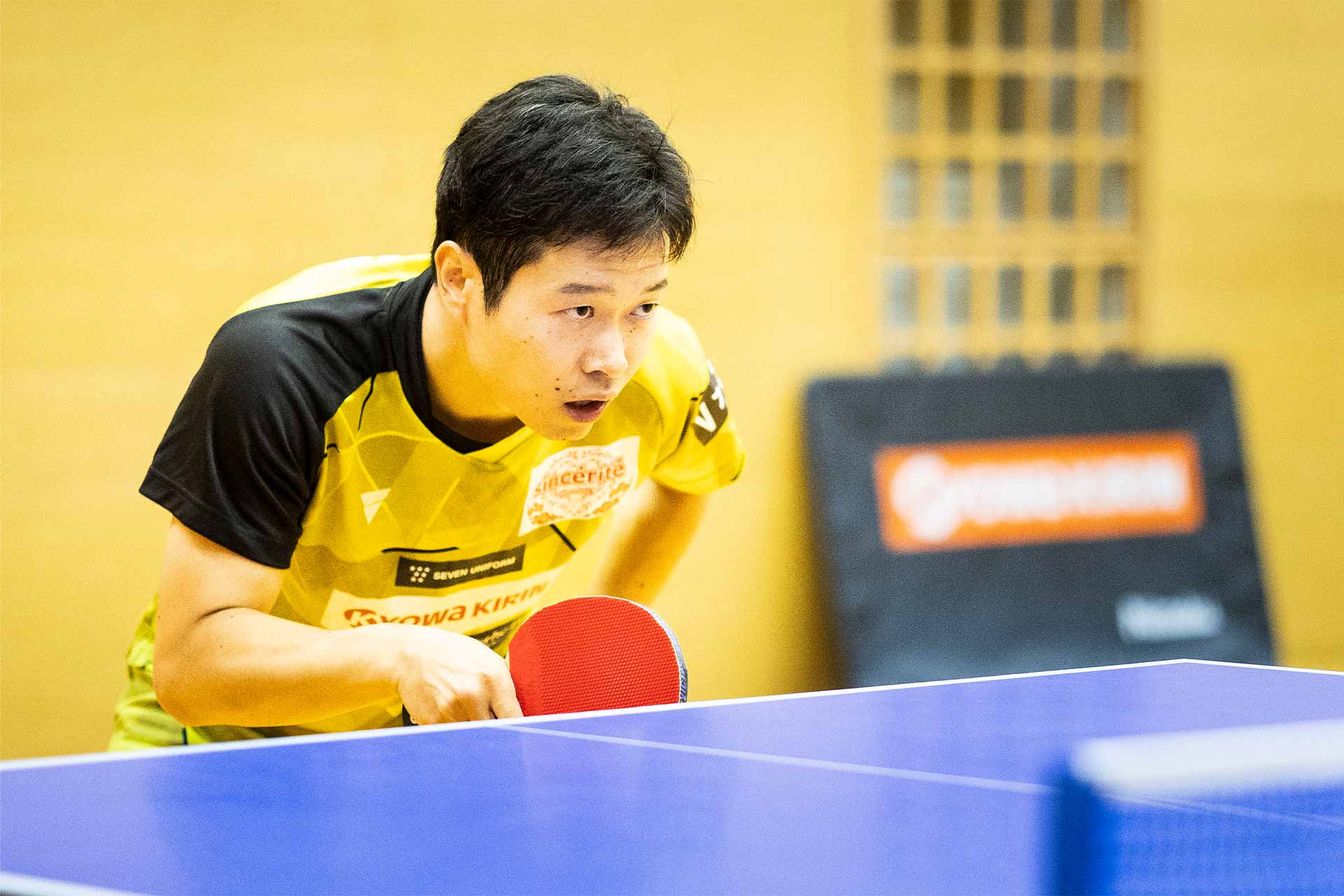
Table tennis is a game which is characterized by dizzying changes between offense and defense and its fast pace, so concentration must also be essential.
“During a match, I try to anticipate my opponent’s moves, think several moves ahead, and pinpoint where I aim my hits. On top of that, another key point is to change your mindset in order to turn the flow of the match in your favor. That can mean doing things like wiping sweat off of yourself with a towel, taking a walk around the table, or even just taking a moment during the match to strategize in your head and make the next play. Sometimes you can also try to throw them off with a quick movement just as they’re about to serve. The psychological aspects of the game that don’t involve the ball are another interesting part of table tennis, I think.”
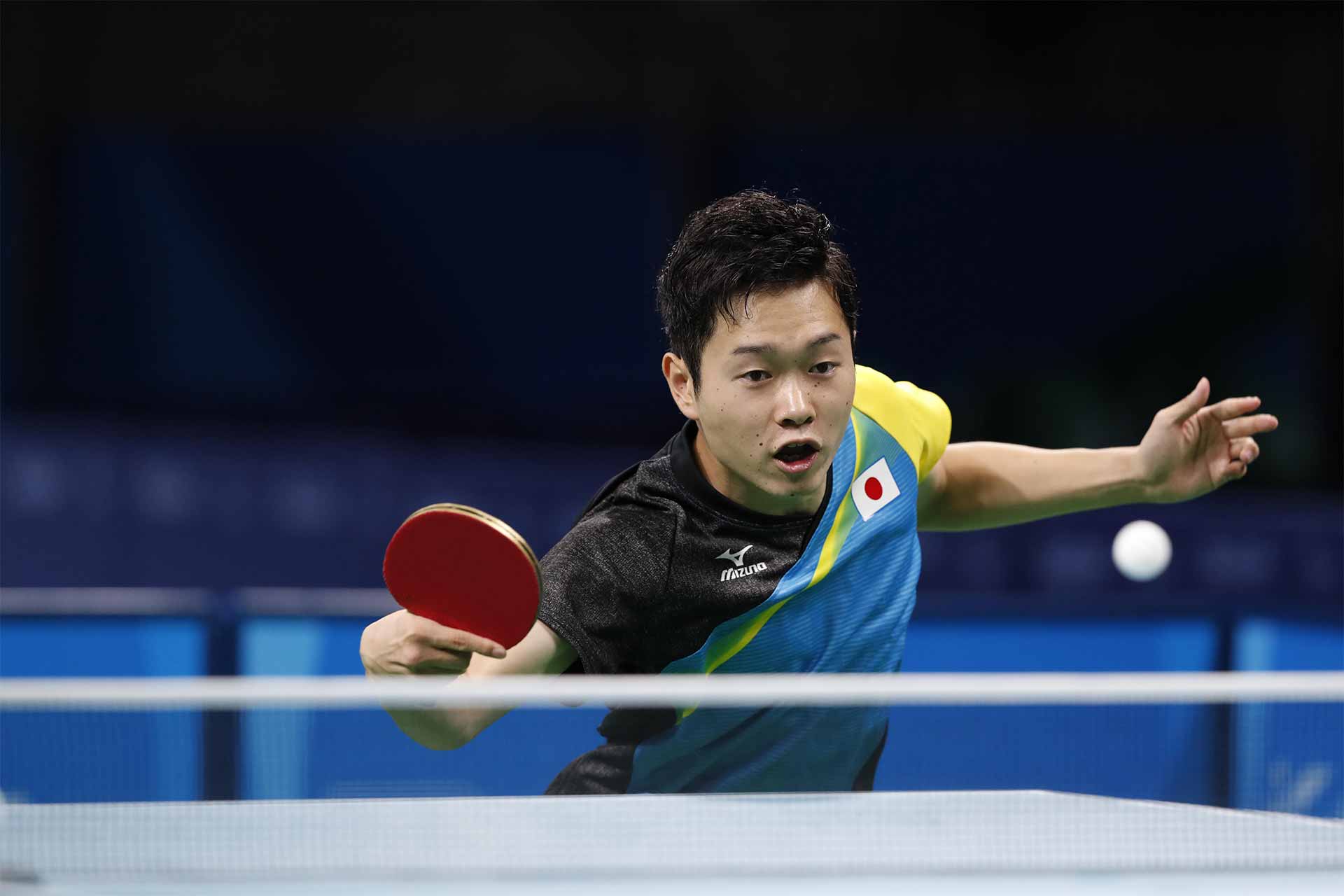
You were in your senior year of university when you competed in the Rio 2016 Paralympic Games. What kind of impression did your first Paralympic Games leave on you?
“In 2013, Tokyo got selected to host the 2020 Olympics and Paralympics, and Rio was the first Games after that announcement, so parasports also suddenly attracted a lot of attention. Still, I personally didn’t actually know what the Paralympics were all about. Taking part in the Games under such circumstances, I was surprised at how grandiose it all was, and I was just so nervous that I don’t even remember how I played in my matches. I enjoyed the Games the most after my matches were over. I got to watch parasports other than table tennis and enjoy the cheerful atmosphere of the Games together with the people of Rio. That experience helped me to feel deep in my heart what a truly wonderful event the Paralympics are.”
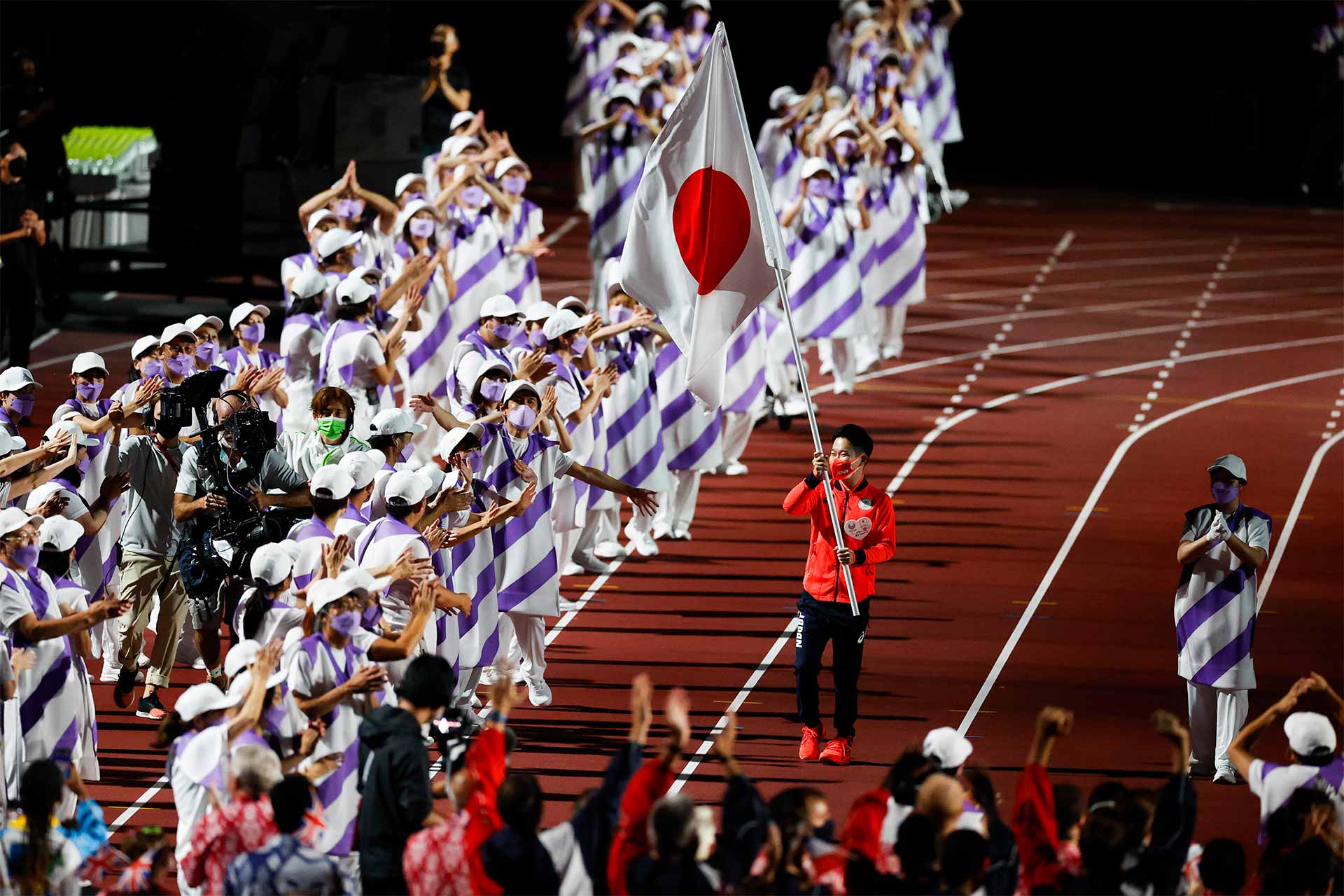
You also competed in the Tokyo 2020 Paralympic Games, held here in your home country.
“The Tokyo 2020 Games got postponed, and I couldn’t say with 100% certainty that I was going to do my best to get to the Paralympics, so there was a part of me that was very unsure up until the end. While I won my first match, I couldn’t make it to the next round, which was incredibly frustrating. That made me realize just how grueling and difficult it is to win. But on the other hand, I also realized how fortunate I am to have support and encouragement from so many people. My experience with the Paralympics has made me realize on numerous occasions that there’s more to sports than just winning and losing. Participating in these two Games also strengthened my desire to do whatever I can to help parasports get seen by as many people as possible so that they too can learn how interesting and fun they are. That’s why my true goal at the Paris 2024 Paralympic Games is what I would call ‘more than gold’, which means I’ll go there with the aim of winning a gold medal, but also with the aim of drawing more attention to the sport, creating greater awareness about the appeal of parasports.”
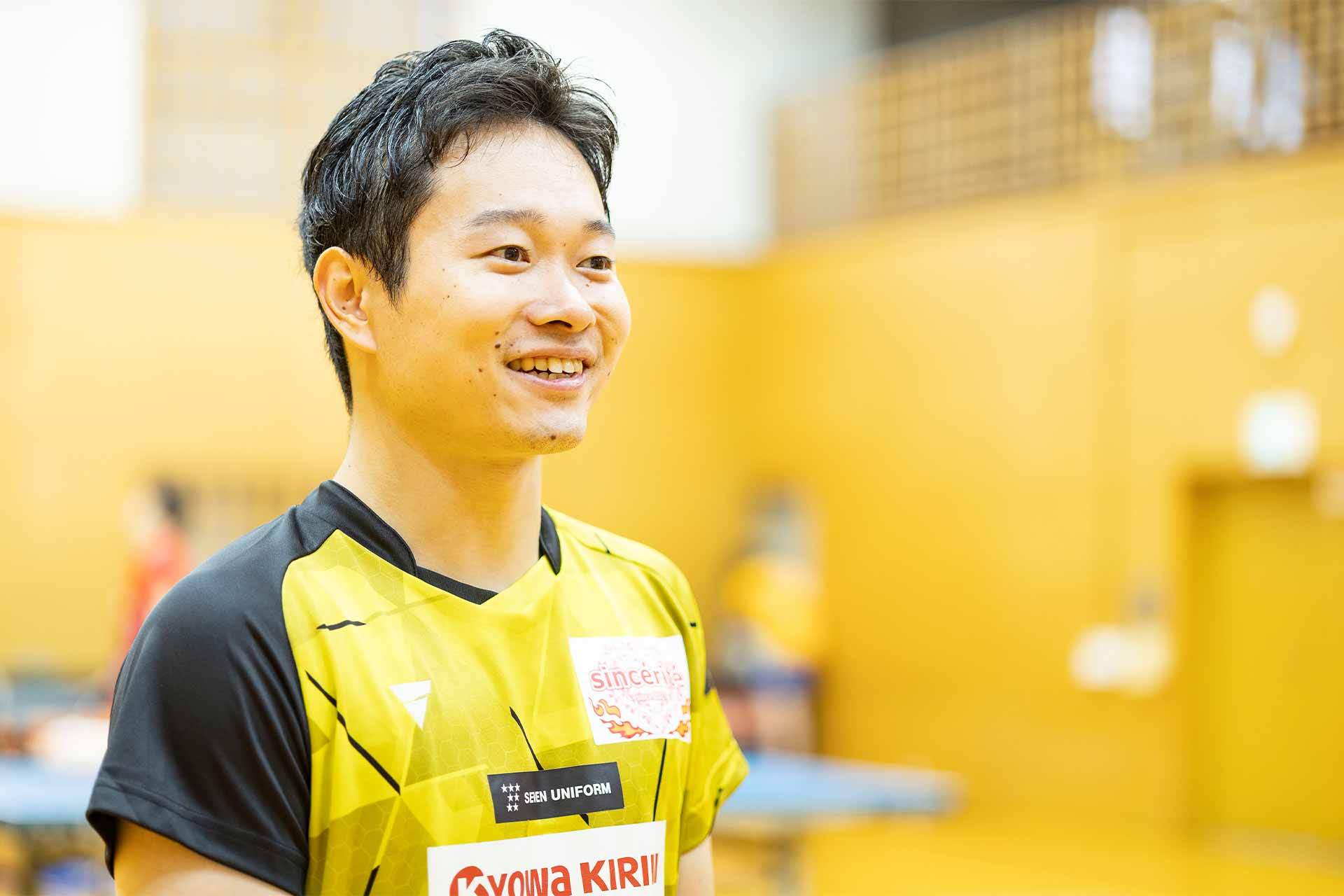
As part of your efforts to spread awareness of Para table tennis, you’ve also held the ‘IWABUCHI OPEN ’ tournament.
“The ‘IWABUCHI OPEN’ started in 2020 as an event to popularize Para table tennis, with the aim of creating an environment where players could play at a time when all of the domestic and international tournaments had been cancelled due to the COVID-19 pandemic. In its first year, the tournament had four competitors, and it was open to spectators on an invitation-only basis. We successfully held the tournament for the third time in March of 2023. There were 25 competitors this time, and an audience of more than 150 spectators. The tournament was divided into standing and wheelchair divisions, and it was a great success overall.”
It seems that awareness about parasports, Para table tennis included, is steadily increasing.
“Yes, I think that’s true. When I was at the Rio 2016 Paralympic Games, I was able to watch a majority of the wheelchair rugby matches. There were a number of aspects of the game that I found interesting, such as the tactics used to score even a single point, as well as time management. But more than anything, it was refreshing to see athletes with disabilities battle it out in their wheelchairs with such intensity. There are a lot of things about the sport that drew me to it. And personally speaking, I’d like to dive even deeper into the appeal of parasports.”
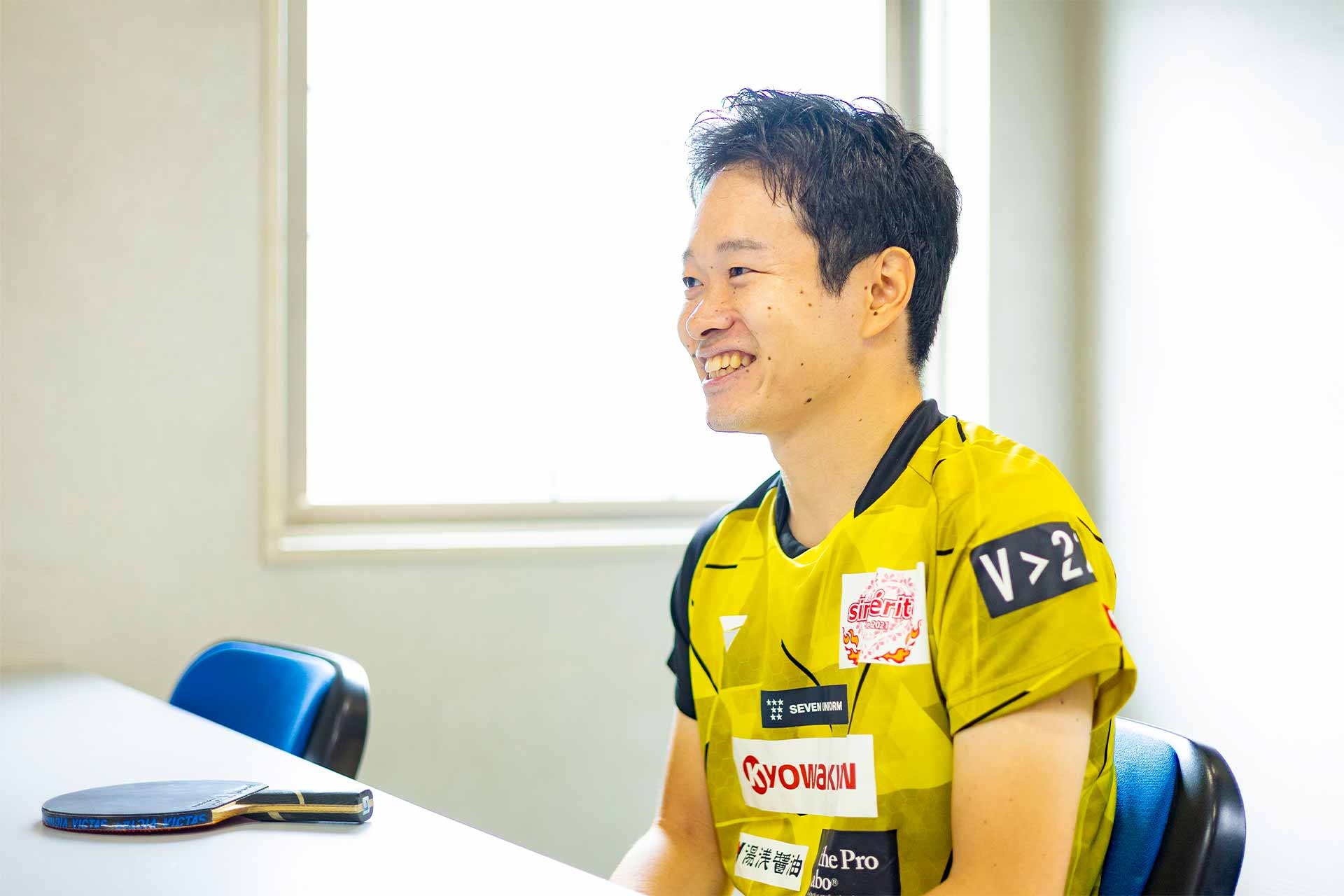
You were born and raised in Tokyo, so do you have some favorite spots that you could share with us?
“I quite like Ueno Park. It’s famous as a cherry blossom viewing spot, but on its spacious grounds there are facilities such as a zoo, art galleries, and museums, so you’ll never get bored there. One place I often visit there is the National Museum of Nature and Science. I studied fossils in college, so when I go there, I enjoy looking at and learning about specimens of dinosaurs and other ancient creatures. There are special and planned exhibitions held during different times that are also worth seeing, and the permanent exhibition alone is worth the visit.”
Ueno Park is a very large park, but in terms of accessibility, is it easy to visit?
“All of the museums and art galleries are barrier-free, and the zoo is largely flat without many slopes in it, so overall it’s quite easy to get around in the park. It’s a great place to enjoy both indoor and outdoor activities, so I definitely recommend visiting it if you have the chance.”
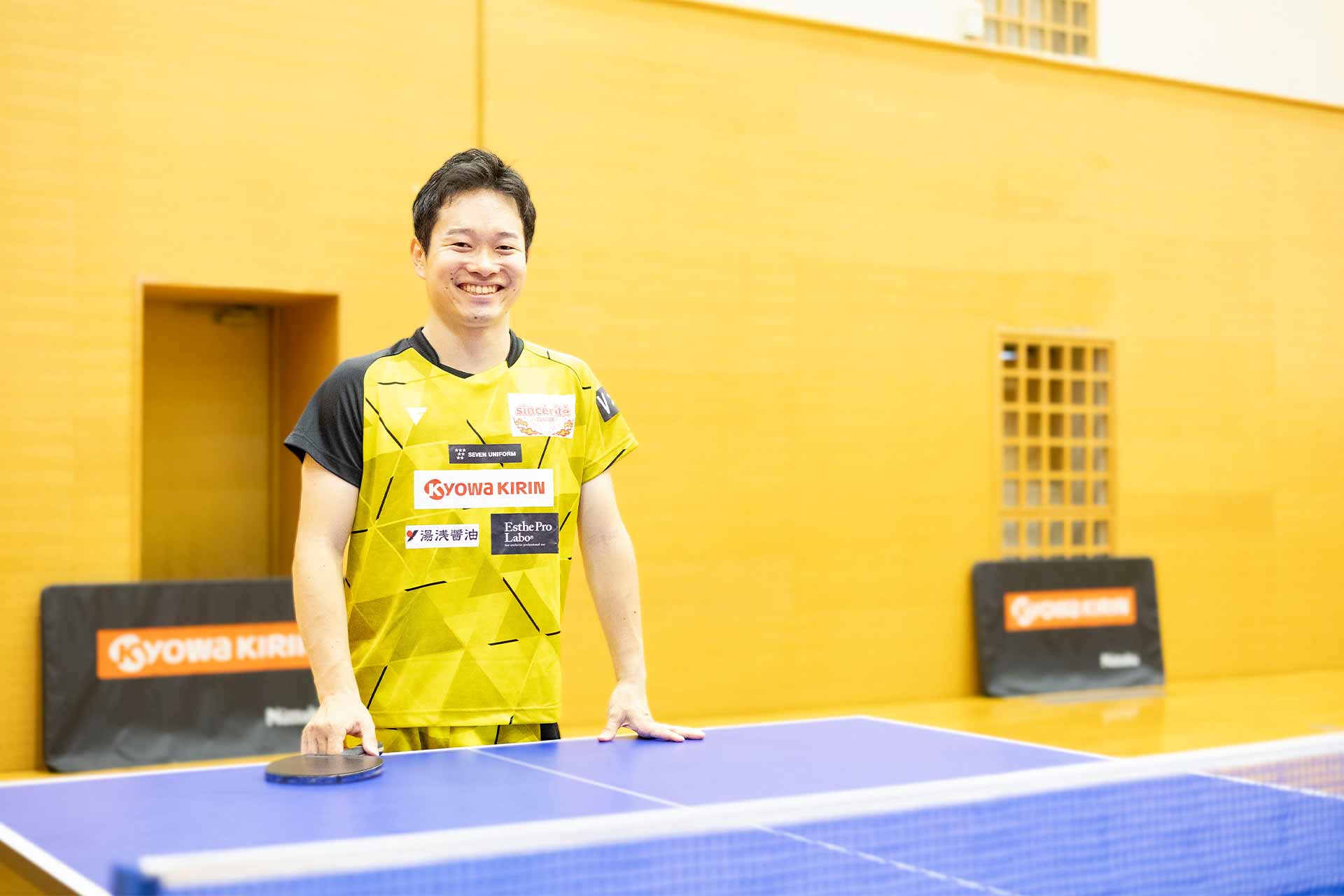
What are some other things that you especially like about Tokyo?
“One thing is the sheer number of choices available when you go out to eat. There’s sushi, Chinese food, and all other sorts of restaurants, and they’re all great. In fact, coaches and players from other countries’ teams have said that when they’re in Tokyo, no matter what restaurant they go to, they have great food and a great time. I think that Tokyo is a really convenient city where you can do anything and go anywhere without any trouble.”
<Profile>
IWABUCHI Koyo
Born in Tokyo in 1994. Having congenital disabilities in both ankles, he plays with a brace on his left leg. He joined the table tennis club upon starting junior high school. In his third year of junior high school, he was introduced to Para table tennis by the coach of his club team. He competed in two consecutive Paralympic Games, the Rio 2016 Games and the Tokyo 2020 Games, and was the flag-bearer for the Japanese delegation at the Tokyo 2020 Paralympic Games. While also aiming to compete in the Paris 2024 Paralympic Games, he is working to promote and raise awareness of parasports through efforts that include holding the ‘IWABUCHI OPEN’ Para table tennis tournament.